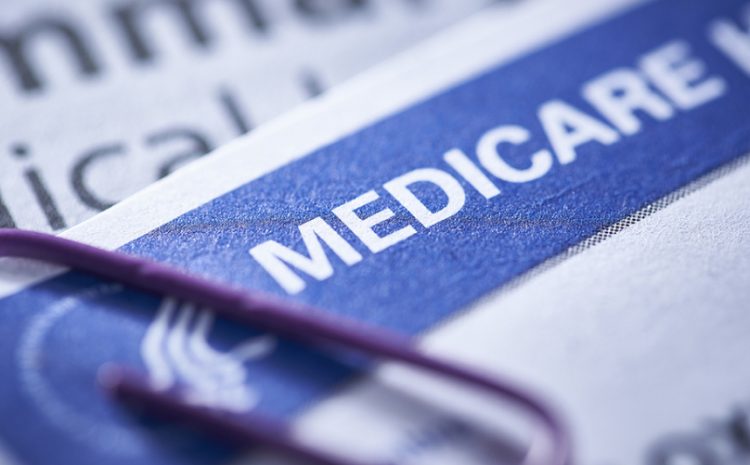

Principal writer, insurance and medicare advisory
MedicarePal principal writer Derick Dolivo covers Medicare. Smith believes in the power of education to help individuals make smart financial decis
- Written on August 10, 2025
- Updated August 17, 2025
At MedicarePal we strive to help you make smarter financial decisions. While we adhere to strict
Key Principles
We value your trust. Our mission is to provide readers with accurate and unbiased information, and we have editorial standards in place to ensure that happens. Our editors and reporters thoroughly fact-check editorial content to ensure the information you’re reading is accurate. We maintain a firewall between our advertisers and our editorial team. Our editorial team does not receive direct compensation from our advertisers.
MedicarePal follows a strict editorial policy, so you can trust that our content is honest and accurate. Our award-winning editors and reporters create honest and accurate content to help you make the right financial decisions. The content created by our editorial staff is objective, factual, and not influenced by our advertisers.
We’re transparent about how we are able to bring quality content, competitive rates, and useful tools to you by explaining how we make money.
Medicarepal is an independent, advertising-supported publisher and comparison service. We are compensated in exchange for placement of sponsored products and, services, or by you clicking on certain links posted on our site. Therefore, this compensation may impact how, where and in what order products appear within listing categories, except where prohibited by law for our mortgage, home equity and other home lending products. Other factors, such as our own proprietary website rules and whether a product is offered in your area or at your self-selected credit score range can also impact how and where products appear on this site. While we strive to provide a wide range offers, Bankrate does not include information about every financial or credit product or service.
In an unprecedented move, the Social Security Administration is poised to distribute the first batch of enhanced social security checks, each valued at $4,873, to eligible beneficiaries in early February. This initiative marks a significant milestone in the administration’s efforts to support the financial stability of its aging population, disabled individuals, and survivors of deceased workers. This post aims to unpack the significance of this development, explore its implications for millions of Americans, and contextualize it within the broader socio-economic landscape.
Historical Context and Recent Developments
To appreciate the significance of these enhanced payments, it’s essential to understand the historical underpinnings of the Social Security program. Established in 1935 as part of the New Deal, Social Security was designed to provide financial assistance to retirees, the disabled, and families of deceased workers, thereby contributing to a safety net for Americans at risk of poverty due to age, disability, or loss.
Over the decades, the program has undergone numerous adjustments to reflect changes in the cost of living, economic conditions, and demographic shifts. However, the recent announcement of checks worth $4,873 represents one of the most substantial increases in individual payments in recent history. This increase is a response to the growing recognition of the challenges faced by beneficiaries, including rising healthcare costs, inflation, and the financial insecurity that plagues many elderly and disabled Americans.
Economic Implications
The distribution of these enhanced checks comes at a crucial time. The American economy, like many others worldwide, has been navigating the turbulent waters of inflation, market volatility, and the lingering effects of the COVID-19 pandemic. For many social security beneficiaries, the increased payment is not just a financial boost but a lifeline.
Economically, this injection of funds into the hands of social security recipients can have several ripple effects. Firstly, it increases the purchasing power of millions of Americans, potentially leading to increased consumer spending. This boost in spending can stimulate economic activity and contribute to economic recovery, particularly in sectors where retirees tend to allocate their resources, such as healthcare, retail, and services.
Moreover, the increase in social security benefits can also play a role in mitigating the impact of inflation on some of the country’s most vulnerable populations. By providing a more substantial financial cushion, the administration helps ensure that individuals can better manage the rising costs of living, from groceries to medical care.
Social Implications
Beyond the economic ramifications, the increase in social security payments carries profound social implications. Social security is more than just a financial program; it’s a reflection of the societal commitment to supporting individuals who have contributed to the economy throughout their lives and now find themselves in need of assistance.
The decision to increase the payments to $4,873 is a recognition of the challenges that many older adults and disabled individuals face. It’s an acknowledgment that the existing levels of support were insufficient to meet the rising cost of living and that the government has a role to play in addressing these shortfalls.
This move can also be seen as a step towards reducing income inequality, a persistent issue in the United States. By boosting the income of social security recipients, the administration is directly contributing to narrowing the income gap, providing a more significant safety net to those who need it most.
Challenges and Considerations
While the increase in social security payments is widely celebrated, it also brings to light several challenges and considerations. Funding the Social Security program has been a subject of ongoing debate, with concerns about the program’s long-term solvency. The decision to increase payments raises questions about how these enhancements will be financed and the implications for the future of the program.
Furthermore, while the increase in payments is a step in the right direction, it also underscores the need for comprehensive solutions to address the broader issues of retirement security, healthcare costs, and income inequality. It highlights the importance of policy reforms, investment in healthcare, and measures to support economic opportunities for all Americans.
Looking Forward
As the first checks worth $4,873 begin to reach beneficiaries in early February, they represent more than just a financial transaction. They symbolize a commitment to the well-being and dignity of millions of Americans. This development is a crucial reminder of the role of social security in the social fabric of the nation and the importance of adapting this program to meet the evolving needs of its population.
Looking forward, the distribution of these enhanced checks sets a precedent for future discussions on social security and social welfare policies. It opens the door to conversations about how to ensure the sustainability of the Social Security program, address the needs of its beneficiaries, and reflect the values of a society that takes care of its most vulnerable members.
In conclusion, the enhanced social security checks worth $4,873 mark a significant moment in the history of social support programs in the United States. They reflect a broader recognition of the economic and social challenges facing millions of Americans and represent a tangible step towards addressing these challenges. As these checks go out in early February, they not only provide immediate financial relief but also spark a critical dialogue about the future of social security and the societal values it embodies.
Was this page helpful?
Medicare Pal adheres to stringent sourcing guidelines, prioritizing primary sources including medical organizations, government agencies, academic institutions, and scholarly journals with peer review. Discover the methods we use to guarantee the accuracy, comprehensiveness, and impartiality of our content in our editorial guidelines.

Do You Need Help With Medicare?
Call us Now 1-866-706-7293











